BIPSS COMMENTARY
-

Fragmented Stability: Can order Exist Without a Hegemon?
Global order stands at a crossroads—can stability truly exist without a hegemon? As global power becomes increasingly fragmented, the world…
Read More » -

Climate Migration as a Security Threat: Preparing for Displacement Hotspots in the 2030s
Climate change is no longer just an environmental issue, it is rapidly becoming a global security concern. The commentary highlights…
Read More » -
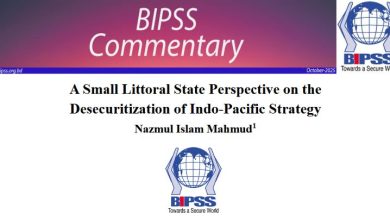
A Small Littoral State Perspective on the Desecuritization of Indo-Pacific Strategy
BIPSS Research Intern Nazmul Islam Mahmud urged in his commentary that Small Littoral States (SLS) must pursue desecuritization through strategic…
Read More » -
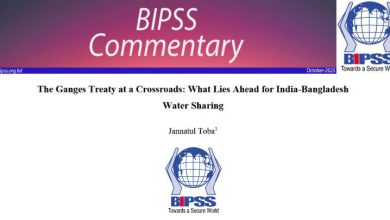
The Ganges Treaty at a Crossroads: What Lies Ahead for India-Bangladesh Water Sharing
BIPSS Research Assistant Jannatul Toba noted that the 1996 Ganges Water Sharing Treaty between India and Bangladesh stands at a decisive…
Read More » -
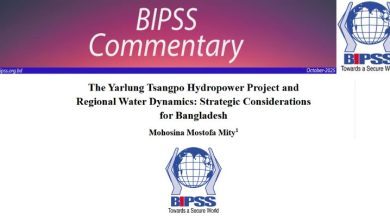
The Yarlung Tsangpo Hydropower Project and Regional Water Dynamics: Strategic Considerations for Bangladesh
Bangladesh will face significant challenges to its water security due to upstream hydropower projects on the Brahmaputra, notably China’s Yarlung…
Read More » -
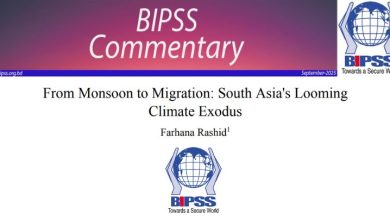
From Monsoon to Migration: South Asia’s Looming Climate Exodus
The commentary “From Monsoon to Migration: South Asia’s Looming Climate Exodus” examines how climate change is turning the South Asian monsoon from…
Read More » -
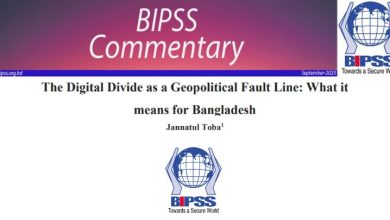
The Digital Divide as a Geopolitical Fault Line: What it means for Bangladesh
Digital technologies have become central to global development and power, yet they have also deepened inequalities between and within nations.…
Read More » -

Military Parades as Power Politics: Why Spectacle Still Matters in Global Rivalries
Power politics is no longer confined to the battlefield—it now marches through the streets. Military parades have evolved into powerful…
Read More » -
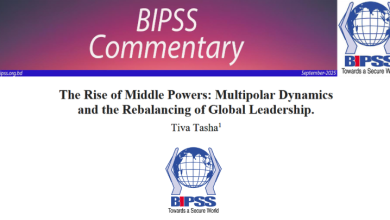
The Rise of Middle Powers: Multipolar Dynamics and the Rebalancing of Global Leadership
The global order is shifting from a world dominated by a single superpower to a multipolar system with many centers…
Read More » -
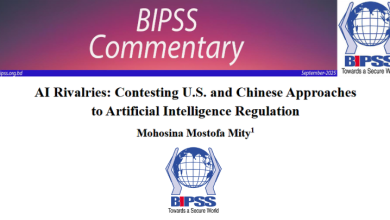
AI Rivalries: Contesting U.S. and Chinese Approaches to Artificial Intelligence Regulation
BIPSS Research Associate Mohosina Mostofa Mity explained in this commentary that the AI rivalry between the United States and China…
Read More »